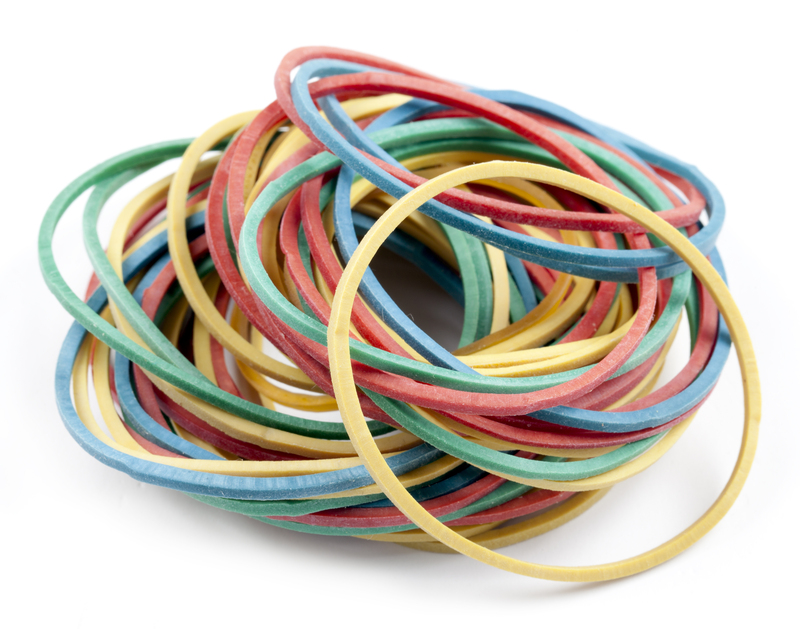Exploring Skip Hire: Key Dos and Don'ts to Remember
Considering skip hire for your next project? Effective skip hire plays a crucial role in managing waste efficiently--whether you are clearing a house, renovating a property, or undertaking a landscaping job. Understanding the essentials can help you save time, money, and avoid costly pitfalls. In this guide, we dive deep into the world of skip hire, discuss the key dos and don'ts, and provide all the relevant tips and tricks to make your waste management process hassle-free.

What Is Skip Hire?
Skip hire is a simple and reliable method for collecting and disposing of large quantities of waste. Skips--large containers available in various sizes--are delivered to your location, filled at your convenience, and then collected for proper disposal or recycling. This system is extensively used by homeowners, businesses, and construction companies across the UK and beyond.
Why Choose Skip Hire?
- It offers a convenient and cost-effective way to manage waste.
- Reduces multiple trips to local tips or recycling centres.
- Enables proper waste segregation and recycling.
- Improves safety and cleanliness on your site.
- Ideal for bulky items and large-scale clearances.
Understanding Your Skip Hire Needs
Before choosing a skip hire service, it's important to assess your specific requirements:
- Volume of Waste: Estimate how much rubbish you need to dispose of.
- Type of Waste: Are you dealing with household items, garden waste, construction rubble, or hazardous materials?
- Location Constraints: Identify where the skip will be placed--on private property or public highway.
Selecting the Right Skip Size
Choosing the right size is essential. Here's a quick overview:
- Mini Skips (2-3 yards): Great for small clearances and minor home projects.
- Midi Skips (4-5 yards): Suitable for bathroom or kitchen renovations.
- Builders Skips (6-8 yards): Ideal for bigger renovation projects, bulky waste, and construction debris.
- Large Skips (10-16 yards): Perfect for commercial projects and bulky, lightweight waste.
Tip: When in doubt, it's better to hire a slightly larger skip to avoid overfilling and additional costs.
The Dos of Skip Hire
To make your skip hire experience efficient and environmentally friendly, follow these essential skip hire dos:
1. Do Research Local Skip Hire Companies
- Choose a reputable provider with positive reviews and competitive pricing.
- Consider their recycling credentials and licenses.
- Check their range of skip sizes and availability.
2. Do Know the Rules on Permits
- If you plan to place the skip on a public road or pavement, contact your local council for a permit.
- Skip hire companies can often arrange permits on your behalf, but always double-check.
- Failure to obtain permits can result in fines.
3. Do Sort Your Waste
- Separate recyclable materials, hazardous items, and general waste where possible.
- Most skip companies offer guidance on waste segregation--make use of this advice!
4. Do Follow Loading Guidelines
- Fill the skip evenly to maximise space and maintain safety.
- Heavier items should be placed at the bottom.
- Do not overfill--follow the "fill line" marked on the skip.
5. Do Consider Environmental Responsibility
- Work with skip hire firms committed to recycling and responsible disposal.
- Ask what percentage of waste they recycle.
- Dispose of hazardous waste separately and according to regulations.
The Don'ts of Skip Hire
To avoid common mistakes and potential penalties, make sure you understand the skip hire don'ts:
1. Don't Mix Prohibited Items
- Electrical appliances, asbestos, tyres, paint, batteries, clinical waste, gas cylinders, and chemicals are usually prohibited in skips.
- Check with your skip hire provider for a detailed prohibited items list.
2. Don't Overfill Your Skip
- You must not load waste above the skip's rim--transporting an overloaded skip is illegal and dangerous.
- Overfilled skips can lead to extra charges or require you to remove excess waste before collection.
3. Don't Block Access or Obstruct Traffic
- When positioning your skip, ensure it does not obstruct driveways, roads, or pedestrian pathways.
- On public land, ensure reflective markings and lights are present, especially at night.
4. Don't Burn Waste in the Skip
- Burning waste in your skip is illegal, poses a safety hazard, and can damage the skip container.
- Always follow the correct disposal methods.
5. Don't Delay Collection
- Leaving a skip uncollected for long periods may attract unauthorised waste dumping or become a neighbourhood eyesore.
- Book your collection in advance and communicate clearly with your provider.
How to Maximise Efficiency When Using Skip Hire Services
Getting the most value from your skip hire service involves careful planning and cooperation:
- Group your waste types before loading to aid recycling efforts.
- Break down large items, such as furniture, to save space.
- Pack flat items first and fill gaps with smaller debris.
- Schedule delivery at a time that meets your project timeline.
- Keep the area around the skip clear for easy access and safety.
Frequently Asked Questions on Skip Hire
What can I put in a skip?
Most general household, garden, and construction waste is allowed. Always double-check the accepted waste list with your supplier. Bulky furniture, metal, wood, soil, bricks, and plastics are normally accepted.
How long can I keep a hired skip?
Most skip hire companies allow a standard hire period, usually ranging from 7 to 14 days, but longer hires are possible by prior arrangement. Discuss your timeline with your provider to avoid additional charges.
Do I need to be present for delivery or collection?
Not necessarily, but ensure the skip area is accessible and clear. Inform the skip hire company of any specific instructions or access issues ahead of time.
Where can a skip be placed?
Skips can be placed on private land such as driveways, gardens, or yards without permits. Placement on public highways, pavements, or verges requires local authority permits. Always plan your skip location before booking.
What happens to my waste after skip collection?
Responsible skip hire companies sort and recycle as much waste as possible at specialised facilities. Any non-recyclable waste is disposed of in accordance with environmental standards.
Benefits of Responsible Skip Hire: Protecting Our Environment
When you hire a skip from a reputable provider, you're contributing to the larger goal of environmental preservation. Here's how:
- Reduces landfill usage: Efficient sorting and recycling ensure less waste ends up in landfill sites.
- Supports circular economy: Many skip hire firms recycle construction waste, turning it back into usable materials.
- Promote safe disposal: Hazardous materials and chemicals are diverted from landfills and handled by specialists.
Skip Hire Cost Factors to Consider
Skip hire prices can vary widely. Make sure you consider:
- Skip size: Larger skips command higher hire fees.
- Location: Urban areas may have higher delivery and permit charges.
- Permit fees: If required, these are set by local authorities.
- Type of waste: Heavy or hazardous waste may attract surcharges.
- Hire period: Extended hire duration can increase overall costs.
Tip: Always request a full quote upfront and check for hidden charges, such as overweight penalties or late collection fees.

How to Find a Reliable Skip Hire Provider
Choosing a trustworthy partner can make your waste disposal smooth and stress-free. Look for providers who:
- Hold up-to-date waste carrier and environmental permits.
- Offer transparent pricing and clear terms.
- Have a track record of punctual deliveries and efficient collections.
- Provide excellent customer service and communication.
- Use modern, well-maintained skips and offer recycling assurances.
Conclusion: Making Skip Hire Work for You
Whether you are tackling a home renovation, spring cleaning, or managing change on a building site, skip hire is an invaluable tool for effective and environmentally responsible waste management. By following the key dos and don'ts of skip hire--from choosing the right provider and size, to understanding permit and loading regulations--you ensure a safe, legal, and efficient experience.
Remember: Plan ahead, act responsibly, respect the rules, and always prioritise recycling wherever possible. Choose a reputable skip hire service to guarantee smooth waste removal and peace of mind for your next project.
For more information or to start your project with the right skip hire, contact your local skip hire experts today and enjoy a cleaner, greener, and more organised approach to waste disposal.